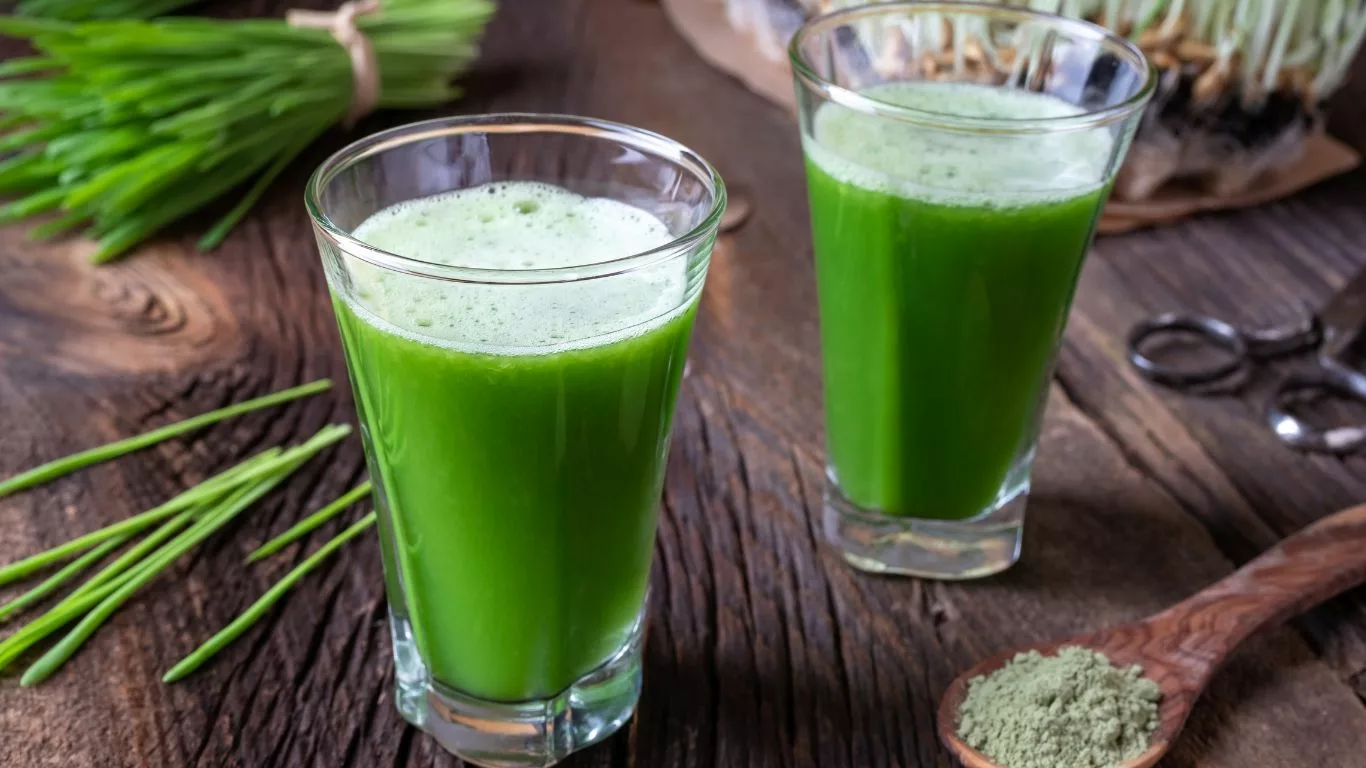Acid Reflux and Gut Health – Everything You Need to Know for Better Digestion
Let’s talk about acid reflux and how it messes with your gut health. If you’re dealing with this, you’re not alone. In this article, we’ll break down what’s really going on in your digestive system and how to manage it without losing your mind (or your appetite).
Acid reflux—what a pain, right? If you’ve ever felt that burning sensation in your chest after eating, or tasted something sour creeping up your throat, you probably know what I’m talking about. But did you know that acid reflux isn’t just about heartburn? It’s about how your entire digestive system is working (or, more often, not working) and how that affects your gut health.

What is Acid Reflux, Anyway?
First things first, let’s define what we’re dealing with. Acid reflux happens when the acid from your stomach splashes up into the esophagus (the tube that connects your mouth to your stomach). Normally, a valve at the bottom of your esophagus (called the lower esophageal sphincter) keeps that acid where it belongs, in the stomach. But when that valve weakens or relaxes inappropriately, acid can escape and cause that oh-so-uncomfortable burning sensation.
This condition is pretty common. In fact, almost everyone has experienced acid reflux at some point in their lives, especially after indulging in spicy foods, fatty snacks, or a big meal before bed. But when this reflux happens more than twice a week, it may be diagnosed as gastroesophageal reflux disease (GERD). And let me tell you, GERD can seriously mess with your gut health.
How Acid Reflux Affects Your Gut Health
You may think of acid reflux as just a minor inconvenience. But it can have long-term consequences on your digestive system and gut health if left untreated. The acid that makes its way into your esophagus isn’t just uncomfortable—it can actually damage the lining of your stomach and esophagus, leading to complications like ulcers and, in severe cases, esophageal cancer.
But it doesn’t stop there. Acid reflux can also disrupt the balance of bacteria in your gut, leading to bloating, discomfort, and even contributing to conditions like irritable bowel syndrome (IBS). The more frequent and severe your reflux is, the more your gut can suffer.
The Gut-Brain Connection
Here’s the thing: your gut and brain are heavily connected. So when your gut is inflamed or struggling with acid reflux, it can also affect your mood and mental health. People with chronic acid reflux or GERD often report higher levels of stress and anxiety, and this makes managing both conditions even harder.
I know it sounds a bit strange, but your gut is sometimes called your “second brain” for a reason! The good news is that by addressing your acid reflux, you can also help improve your gut health—and vice versa.

How to Manage Acid Reflux and Protect Your Gut Health
Now for the good part: How do you get this all under control? There’s no need to completely overhaul your life, but some small changes can make a world of difference.
1. Diet is Key
What you eat has a huge impact on acid reflux and your overall gut health. Some foods can trigger reflux, while others can soothe the symptoms and promote a healthier gut. Here’s a quick rundown:
- Foods that trigger reflux: spicy foods, chocolate, citrus, tomatoes, and fatty foods (think greasy fast food).
- Gut-friendly foods: Lean proteins like chicken and fish, whole grains, vegetables (except those that are too acidic), and non-citrusy fruits. These can help reduce reflux and maintain a balanced gut microbiome.
2. Eat Smaller, More Frequent Meals
Big meals can trigger acid reflux, so try eating smaller portions throughout the day. This helps prevent your stomach from becoming too full, which can push acid into your esophagus.
3. Stay Upright After Eating
You know that old advice to not lie down right after eating? It’s true! Lying down too soon can make reflux worse because gravity isn’t helping to keep that stomach acid in place. Try waiting at least two to three hours before lying down or going to bed.
4. Hydration is Crucial
Drinking water is a simple yet effective way to dilute stomach acid and promote better digestion. Just don’t go overboard with carbonated drinks or alcohol—they can actually make things worse.
5. Mind Your Stress Levels
I know it’s easier said than done, but stress can make your reflux worse. Try relaxation techniques like meditation, yoga, or just taking a walk after a stressful day. By keeping stress under control, you’ll also give your gut a fighting chance.
6. Medications and Supplements
While lifestyle changes are the foundation of managing acid reflux, medications can help if things are out of hand. Antacids, proton pump inhibitors (PPIs), and H2 blockers are common treatments. But they should only be used with your doctor’s guidance.
How to Know If You Have GERD
If you’ve been dealing with acid reflux more than twice a week or if you notice it’s affecting your quality of life, you might have GERD. Symptoms can include:
- Chronic heartburn
- A sour or bitter taste in your mouth
- Difficulty swallowing
- Persistent cough or throat clearing
- Regurgitation of food or liquid
It’s a good idea to visit a doctor if any of these symptoms sound familiar, as untreated GERD can lead to more serious issues.

Conclusion: Better Gut Health, One Step at a Time
Managing acid reflux doesn’t have to be an overwhelming task. By tweaking your diet, making lifestyle changes, and being mindful of what your body needs, you can improve both your reflux symptoms and your gut health. Remember, your gut is the center of your overall well-being, so treating it with care will pay off in the long run.
If you’re struggling with acid reflux and gut health, don’t be afraid to take small, manageable steps. And if you ever feel stuck, your healthcare provider can be a huge help in guiding you through the process. Here’s to a healthier gut and a more comfortable life!
Appendices
FAQs
- Can acid reflux affect my gut health long-term? Yes! Chronic acid reflux can damage your esophagus and disturb your gut microbiome, leading to issues like bloating, gas, and even IBS.
- What are the best foods to eat for acid reflux? Focus on lean proteins, non-citrusy fruits, vegetables (except acidic ones), and whole grains. Avoid spicy or fatty foods.
- Is it okay to take medication for acid reflux? Medications can be helpful, but it’s best to use them under a doctor’s guidance. Lifestyle changes should be your first step.
- Can stress really make acid reflux worse? Absolutely! Stress can increase stomach acid production, making reflux symptoms worse.
- How can I prevent acid reflux at night? Avoid eating large meals close to bedtime and try propping yourself up with pillows to keep stomach acid from rising.
- What lifestyle changes can help with acid reflux? Eating smaller meals, avoiding trigger foods, staying upright after meals, and managing stress are all key changes to consider.
- Can acid reflux cause stomach ulcers? Yes, if left untreated, acid reflux can lead to ulcers in the stomach and esophagus.
- Are there any natural remedies for acid reflux? While some people find relief from natural remedies like ginger tea or aloe vera juice, it’s always best to consult with a doctor before trying new treatments.
- How can I improve my gut health? Eating a balanced diet rich in fiber, avoiding processed foods, staying hydrated, and managing stress can all improve your gut health.
- Should I see a doctor if I have frequent acid reflux? Yes, frequent acid reflux can lead to complications, so it’s important to get a proper diagnosis and treatment plan from a healthcare professional.
References
- National Institute of Diabetes and Digestive and Kidney Diseases (2023). Acid Reflux and GERD. Read Article
- Smith, R., & Jones, T. (2021). The Impact of Acid Reflux on Gut Health. Journal of Gastrointestinal Health, 45(3), 210-220. Read Article
- American Gastroenterological Association (2024). Acid Reflux and Its Effects on the Digestive System. Read Article
Disclaimer
The information provided in this article is for educational purposes only and should not be considered as medical advice. Always consult your healthcare provider for a proper diagnosis and treatment plan tailored to your specific condition.

Camellia Wulansari is a dedicated health writer specializing in digestive disorders, contributing valuable insights and information to the health and wellness community. With a passion for promoting well-being through knowledge, Camellia serves as a reliable source of expert content on healthusias.com.






